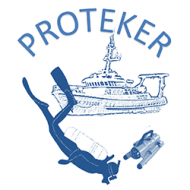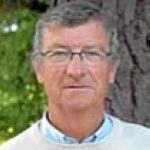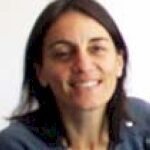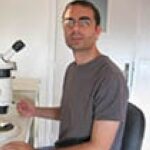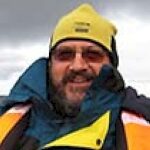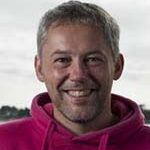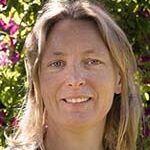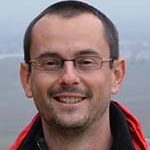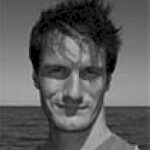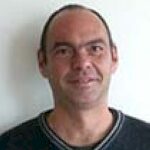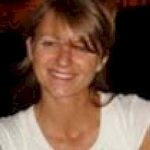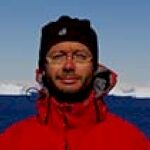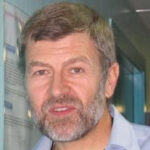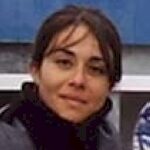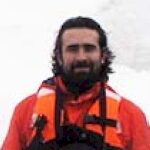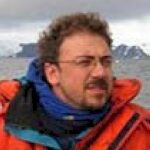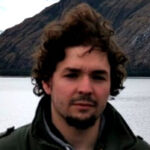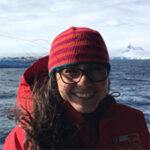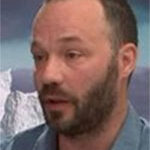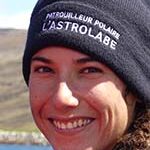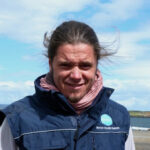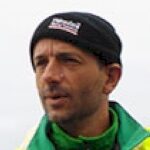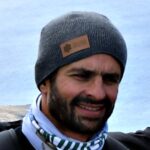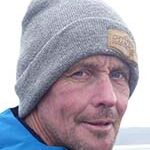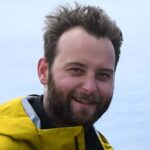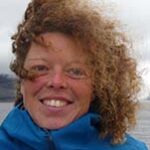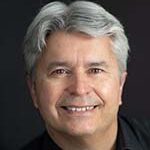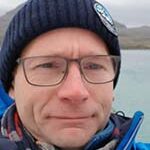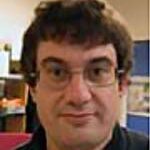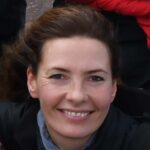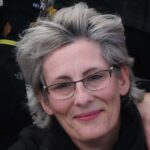PROTEKER is coordonated by Thomas Saucède (Biogéosciences, Dijon).
Several laboratories collaborate to this program
in France
- Université de Bourgogne, Laboratoire Biogéosciences – Research unit 6282, Dijon
- Institut Méditerranéen de Biodiversité et d’Écologie marine et continentale, IMBE – Research unit 7263, Marseille
- Muséum national d’Histoire naturelle, MNHN, Institut de Systématique, Evolution et Biodiversité – UMR 7205 ISYEB, Concarneau
- Centre de droit maritime et océanique – EA 1165, Nantes
- Observatoire Océanologique de Banyuls-sur-Mer – UMS 2348
- Université des Antilles et de la Guyane, Laboratoire de Biologie Marine, Pointe-à-Pitre, Guadeloupe
and abroad
- Chile:
- Universidad de Chile, Laboratorio de Ecología Molecular (LEM), Instituto de Ecología y Biodiversidad, Departamento de Ciencias Ecológicas, Facultad de Ciencias, Santiago.
- Universidad Austral de Chile (UACH), Instituto de Ciencias Marinas y Limnológicas, Valdivia.
- Universidad de Concepción, Facultad de Ciencias Naturales y Oceanográficas Concepción.
- Universidad de Magallanes, Laboratorio de Ecosistemas Marinos Antárticos y Subantárticos (LEMAS), Instituto de la Patagonia, Punta Arenas.
- Belgium:
- Université Libre de Bruxelles, Marine Biology Lab, BIOMAR, Faculté des Sciences, Bruxelles
- Université de Liège, Laboratory of Oceanology, Freshwater and Oceanic Sciences Unit of Research (FOCUS), Liège
Collaboration with IPEV projects
- IPEV program 1258 WiSeNet, Implementation of Wireless environmental Sensor Networks in the French Southern and Antarctic Lands using the Long Range (LoRa) technology and Wide Area Network (LoRaWAN) protocol / The implementation of the wireless sensor network in Kerguelen includes sea water temperature and salinity loggers (RBR) set up by scuba divers of Proteker on the shore at reference sites.
- IPEV prog 1245 MUSSEL-KER, A multi-omics platform for the monitoring and study of coastal marine ecosystems in Kerguelen / Following our former collaboration with prog 409 Immunotoxker and sampling/monitoring design at common sites, staff of Proteker and of new program Musselker will keep actively collaborating with sampling of mussels in the field by scuba divers of Proteker and analyses by scientists of Musselker.
- IPEV prog 1200 EnviKer, Characterizing and monitoring of Kerguelen environments and paleo-environments using thecamoebae / Sampling of sediments by scuba divers of Proteker at reference sites along bathymetric transects and across habitats and sediments to assess the diversity of foraminiferids
- IPEV prog 136 SubAnteco, Subantarctic biodiversity, effects of climate change and biological invasions on terrestrial biodiversity / The collaboration initiated during summer campaign 2019-2020, with collection of sediments and polychaetes by scuba divers for analyses of ecological immunology, will continue with ground-truthing operations in the field for calibration of chlorophyll-a remote sensing during summer campaign 2021-22 using a drone and improve the mapping of kelp forests.
- Ipev program 1124 REVOLTA, Ecological resources and development by a long-term observatory in Adelie Land / REVOLTA is the twin program of PROTEKER that aims to establish a long-term high-Antarctic marine observatory at Dumont Durville research base, in Adelie Land. In particular, instrumentation of marine stations and monitoring have been performed in concert between the two programs for reliable comparison of biological/ecological data between sub-Antarctic and Antarctic coastal habitats.
Links with international programs
- Genomics Antarctic Biodiversity (GAB) – Funded by the the Chilean Science Agency (CONICYT) and supported by the Chilean Antarctic Institute (INACH) for logistics of scientific expeditions to the Antarctic Continent, the GAB project (Genomics insight into the past and present of Antarctic Biodiversity: a tool to assess the fate of a unique ecosystem in a changing world) is centered in the evolution of the South American and Antarctic biodiversity. This project requires an important network of international collaborations, including program Proteker with joined expeditions to the Kerguelen Islands, students interchange and co-tutoring, researcher visits and sample acquisition.
- The RECTO project (RECTO) – Funded by the Belgian Science Policy Office, RECTO aims at assessing the impact of the main stressors driven by global change on Antarctic ecosystems using an integrated multiscale approach including a broad range of representative taxa. There are many reasons for ongoing the close collaboration established between the RECTO and PROTEKER projects, as many scientific questions and objectives identified under the PROTEKER proposal match those with the RECTO project. A synergetic approach, consolidating long-standing collaborative networks, provides a suitable framework to better understand responses of and linkages between Antarctic and Subantarctic ecosystems to ongoing environmental changes, and will provide relevant information to improve conservation and management of their biodiversity.
Instances
- Réserve Naturelle des Terres Australes Françaises, TAAF, Saint Pierre, La Réunion
- Affaires scientifiques subantarctiques (logistique), Institut Polaire Français Paul Émile Victor, Plouzané
- i-LTSER, France, Zone Atelier Antarctique et Subantarctique ZATA (CNRS, INEE) /The i-LTSER Zone Atelier Antarctique monitors long term dynamics in biodiversity and ecosystems of the French Antarctic and sub-Antarctic Territories, including the Southern Ocean. As a long-term monitoring and observing project, the PROTEKER IPEV-1044 program makes part of the i-LTSER ZATA
- IDEAL, Dynamics of High Latitude Marine Ecosystems Research Center / The Dynamics of High Latitude Marine Ecosystems Research Center (IDEAL) is the most important national research project in Chile for Antarctic and sub-Antarctic studies. Funded by the National Commission for Scientific and Technological Research (CONICYT) of Chile, through the Fund of Research Centers in High-priority Areas (FONDAP), and the Chilean Antarctic Institute (INACH) for logistics, one objective is access to data, samples, areas, and exchange of knowledge between researchers working on sub-Antarctic provinces of the Southern Ocean. Proteker perfectly fits with research lines of IDEAL, for which sub- Antarctic nearshore marine environments are a priority.
- INACH, The Chilean Antarctic Institute / The Chilean Antarctic Institute INACH is in charge of coordinating, planning and executing scientific and technological activities in Antarct¡ca of Chilean researchers. Program Proteker has a long history of collaboration with chilean researchers. All Chilean collaborators of Proteker are also involved in ongoing project supported by INACH in Antarctica.
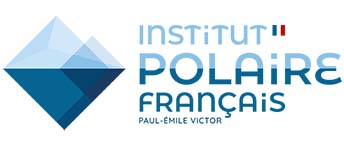 | 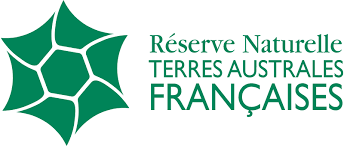 | 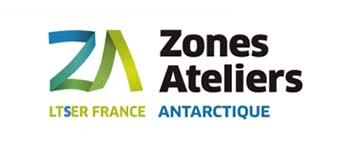 |  | 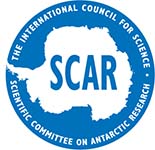 |
Who’s who
Click on the photo for a short bio
France
Professor at Muséum national d'Histoire naturelle, Head of Station Marine de Concarneau
- Concarneau, Paris
Zoologist, assistant professor at Ecole Pratique des Hautes Etudes, specialized in image analyses
- Dijon
Président du MNHN, specialist of paleontology and evolutionary and biodiversity sciences
- Paris
Maître de conférences: Biodiversité: Interactions, Adaptations, Spéciation
- Paris, Concarneau
Research director emeritus at Station Marine d'Endoume, Marine ecology, Evolutionary Biology, scientific diver
- Marseille
Maître de conférences, Sorbonne Université
- Concarneau
Professor at MNHN, Institut de Systématique, Évolution, Biodiversité, scientific diver [CCR], UMR 7205
- Paris
ingeneer, scientific diver, underwater works, photograpfy and video shooting
- Marseille
Geochemist, assistant professor at Université de Bourgogne, specialist of isotope analyses
- Dijon
ingeneer, techniques for the study of natural and rural environments, diving officer of UMR 6282, scientific diver, underwater works, sampling, photography and video shooting
- Dijon
Assistant professor at the Université des Antilles in Guadeloupe, marine ecologist, trophic role of meiofauna for larger organisms
- Pointe-à-Pitre, Guadeloupe
CNRS researcher at the Centre de Recherches de Climatologie (UMR6282 Biogéosciences), climate monitoring and modeling
- Dijon
Technician, diver at Observatoire Océanologique de Banyuls-sur-Mer, scientific diver, underwater works, sampling
- Banyuls-sur-Mer
Geochemist, Engineer at Université de Bourgogne, in charge of isotope analyses
- Dijon
Assistant Professor at the University of Burgundy, Geologist and paleontologist by training, macroecology, macroevolution, and biogeography, scientific diver
- Dijon
Researcher at CNRS (MIO), Algology, marine ecology, scientific diving
- Marseille
Chile
Professor at University of Concepción, Marine biology, molecular biology, scientific diver
- Concepción
Associate Professor, Evolutionary Biology, Ecology and Molecular Biology, scientific diver
- Punta Arenas
Full professor, head of Laboratorio de Ecología Molecular (LEM), Evolutionary biology, marine ecology, limnology, scientific diver
- Santiago
Young researcher at Universidad de Magallaes, Malacology of Subantarctic environments, interaction of mollusks with macroalgae
- Punta-Arenas
Laboratory manager at Laboratorio de Ecología Molecular, evolutionary biology, ecology
- Santiago
Belgium
Research Director at the National Fund for Scientific Research (Belgium) and Head of the Marine Biology Laboratory at the Université Libre de Bruxelles, ecophysiology
- Brussels
Lecturer at Liège university, marine ecologist, food web structure and trophic interactions
- Liège
French Polar Institute & French Southern Lands National Nature Reserve
Contract worker RNN-TAF, scientific diver, underwater works, sampling
- Saint-Pierre, La Réunion
Head of sub-Antarctic scientific operations at the French Polar Institute
- Plouzané
Contract worker RNN-TAF, scientific diver, underwater works, sampling
- Saint-Pierre, La Réunion
Contract worker RNN-TAF, scientific diver, underwater works, sampling
- Saint-Pierre, La Réunion
Contract worker RNN-TAF, scientific diver, pilot assistant, underwater works, sampling
- Saint-Pierre, La Réunion
Contract worker RNN-TAF, scientific diver, underwater works, sampling
- Saint-Pierre, La Réunion
Contract worker RNN-TAF, scientific diver, underwater works, sampling
- Saint-Pierre, La Réunion
Collaborative Programs
Professeur at INRS, PROGRAMME IPEV 1245 MUSSELKER - développement d’outils pour analyses multi-omiques
- Laval
Assistant Professor, PROGRAMME IPEV 1200 ENVIKER - foraminifères, micropaléontologie, océanographie
- Villeneuve d
Engineer at CNRS, PROGRAMME IPEV 1258 WISENET - Instrumentation, soutien aux systèmes d’observations en écologie
- Rennes
Engineer at CNRS, PROGRAMME IPEV 136 SUBANTECO - Ecologie du paysage, Invasions biologiques, Analyse spatiale, Systèmes d'Information Géographique (SIG)
- Villeneuve d'ascq
Associate professor, PROGRAMME IPEV 136 SUBANTECO - Changements climatiques, actions anthropiques et biodiversité des écosystèmes terrestres subantarctiques
- Lille
Engineer at CNRS, PROGRAMME IPEV 136 SUBANTECO - Changements climatiques, actions anthropiques et biodiversité des écosystèmes terrestres subantarctiques
- Lille
